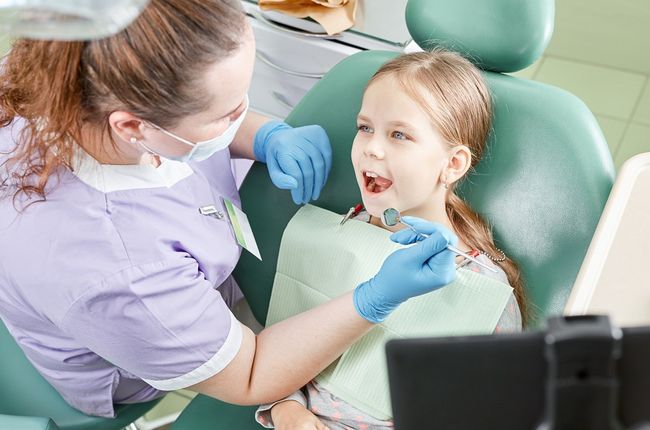![This is a thumbnail image of blog Prioritize Dental Health This Holiday Season for a Bright and Healthy Smile This is a thumbnail image of blog Prioritize Dental Health This Holiday Season for a Bright and Healthy Smile]()
Prioritize Dental Health This Holiday Season for a Bright and Healthy Smile
Dec 22, 2023![This is a thumbnail image of blog Dos and Don'ts before the Root Canal Procedure This is a thumbnail image of blog Dos and Don'ts before the Root Canal Procedure]()
Dos and Don'ts before the Root Canal Procedure
Feb 25, 2022![This is a thumbnail image of blog Perks of Having a Family Dentist This is a thumbnail image of blog Perks of Having a Family Dentist]()
Perks of Having a Family Dentist
Jun 29, 2022![This is a thumbnail image of blog Why is it Essential To See Your Dentist in December? This is a thumbnail image of blog Why is it Essential To See Your Dentist in December?]()
Why is it Essential To See Your Dentist in December?
Dec 08, 2022![This is a thumbnail image of blog Tips for Teeth Healthy Thanksgiving This is a thumbnail image of blog Tips for Teeth Healthy Thanksgiving]()
Tips for Teeth Healthy Thanksgiving
Nov 16, 2022

The Dental Exam: What To Expect
Are you afraid of going to the dentist? Don't worry, you're not alone. Many people have anxiety when it comes to dental appointments. But guess what? Understanding what happens during a dental exam can help alleviate those fears and make your next visit a breeze! In this blog post, we will demystify the dental exam process and give you an inside look at what to expect. So sit back, relax, and let us guide you through this essential aspect of oral health care!
What is a dental exam?
A dental exam is a routine check-up conducted by a dentist to assess the overall health of your teeth and gums. It involves a thorough examination of your oral cavity, including the teeth, gums, tongue, and other soft tissues. This comprehensive evaluation allows the dentist to identify any existing or potential dental issues.
During a dental exam, the dentist will start by asking you about your medical history and any concerns or symptoms you may have. This information helps them understand your individual needs better. Next, they will perform an examination using various tools such as mirrors and probes to inspect each tooth's condition and search for signs of decay or damage.
The dentist will also evaluate the health of your gums by checking for inflammation or bleeding. They might use a periodontal probe to measure the depth of gum pockets around each tooth - this helps in diagnosing gum disease at its early stages.
Additionally, during the dental exam, your dentist may take X-rays if necessary. These images provide valuable insights into areas that are not visible through visual inspection alone. X-rays help detect cavities between teeth, root infections, bone loss due to periodontal disease, or abnormalities in jaw structure.
A dental exam is crucial for maintaining good oral health as it allows dentists to identify problems early on before they worsen. By catching issues sooner rather than later through regular exams, you can prevent more extensive treatment down the line – saving yourself time and money while preserving that beautiful smile!
Why are dental exams important?
Regular dental exams are an essential part of maintaining good oral health. They play a crucial role in preventing and detecting any potential dental issues before they escalate into more significant problems.
One of the main reasons why dental exams are important is that they enable your dentist to evaluate the overall condition of your teeth and gums. During the exam, your dentist will carefully examine each tooth, checking for signs of decay, cavities, or gum disease. This thorough assessment allows them to identify any areas that require immediate attention or preventive measures.
Moreover, dental exams also provide an opportunity for early detection of oral cancer. Your dentist will carefully examine your mouth, tongue, throat, and neck for any abnormalities or suspicious lesions. Detecting oral cancer in its early stages significantly increases the chances of successful treatment.
Additionally, regular dental check-ups allow your dentist to monitor any existing dental work you may have done, such as fillings or crowns. They can ensure that these restorations remain intact and functional and make recommendations if replacements or repairs are needed.
Scheduling regular dental exams is vital for preserving your oral health and preventing future complications. It's a proactive measure that ensures early intervention when necessary while promoting long-term well-being in maintaining a healthy smile!
What happens during a dental exam?
During a dental exam, you can expect several things to happen. First, the dentist or hygienist will review your medical history and ask if you have any concerns or specific issues with your teeth or gums. This is important because it helps them understand your overall health and any factors that may affect your dental care.
Next, they will typically perform a visual examination of your mouth, looking for any signs of tooth decay, gum disease, or other oral health issues. They may use tools like a mirror and probe to get a closer look at each tooth and check for plaque buildup or cavities.
After the visual exam, they usually take x-rays of your teeth to get a more comprehensive view of what's happening below the surface. X-rays can reveal hidden problems such as impacted wisdom teeth or bone loss due to gum disease.
Once all the necessary assessments are done, the dentist will discuss their findings with you and recommend any treatments or procedures that may be needed. This could include anything from routine cleanings and fillings to more advanced procedures like root canals or extractions.
A dental exam is an essential part of maintaining good oral health. It allows dentists to catch potential problems early on before they become more serious issues. So don't skip those regular appointments – taking care of your smile starts with regular dental exams!
Conclusion
A dental exam is a crucial part of maintaining good oral health. By visiting your dentist regularly for these exams, you can stay on top of any potential issues and ensure that your teeth and gums are in the best possible condition.
During a dental exam, your dentist will thoroughly assess the health of your mouth, including checking for cavities, gum disease, and other oral problems. They may also take X-rays to get a more detailed view of what's happening beneath the surface.
In addition to addressing any immediate concerns, your dentist will also provide valuable guidance on proper oral hygiene practices and offer personalized recommendations based on their findings. This information can help you improve your at-home care routine and prevent future dental issues from arising.
Remember that prevention is always better than cure when it comes to dental health. Regular dental exams allow dentists to catch problems early on before they become more serious – saving you time, money, and discomfort down the line.
So don't wait until there's a problem to visit your dentist; make those regular dental check-ups a priority. Your smile will thank you!
Office Hours
MON9:00 am - 4:00 pm
MON - TUE9:00 am - 5:00 pm
TUE - WED7:30 am - 5:30 pm
WED9:00 am - 5:00 pm
THU7:30 am - 5:30 pm
THU - FRI9:00 am - 5:00 pm
FRI9:00 am - 4:00 pm
SAT - SUNClosed




















comments